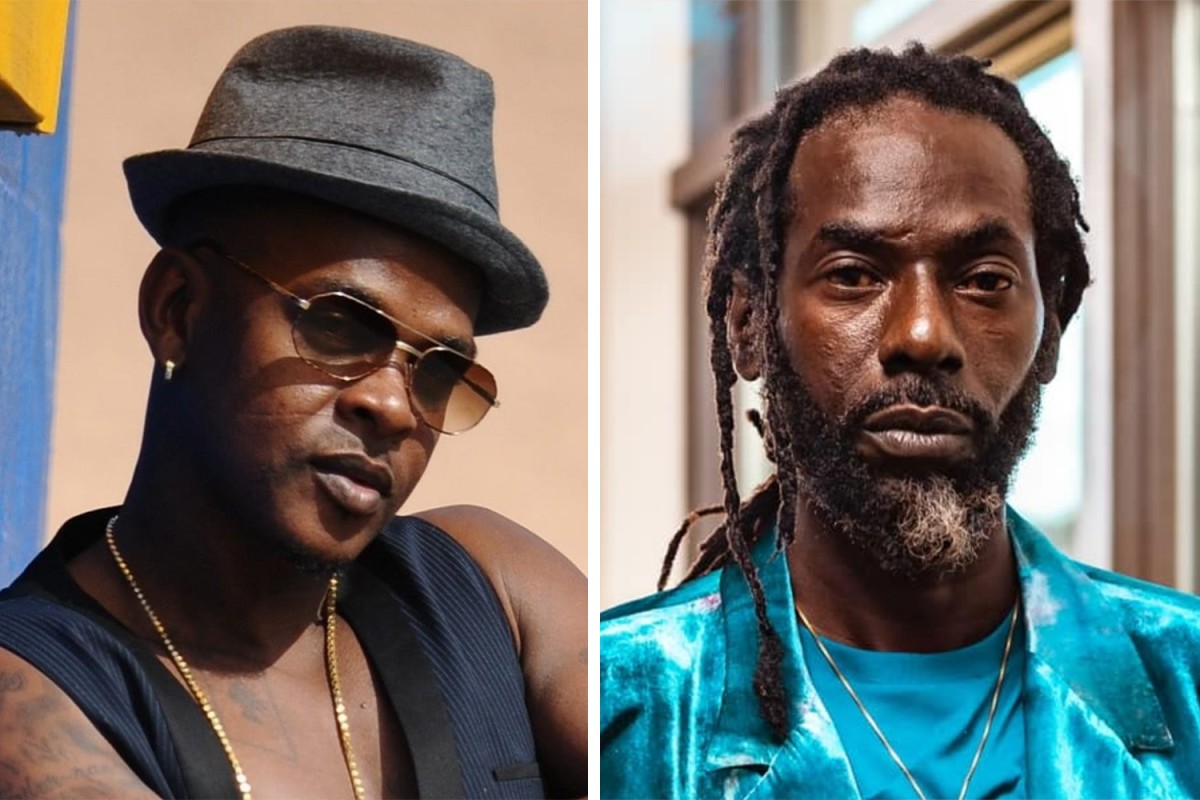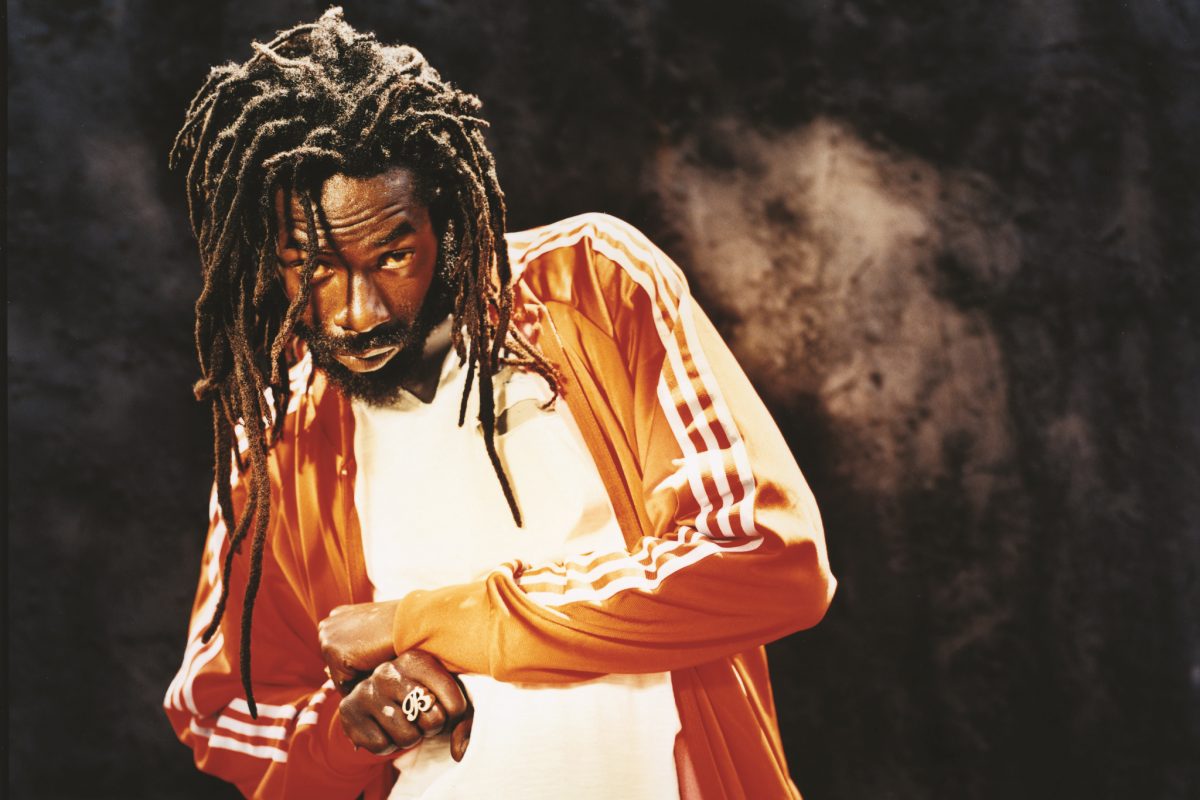Mr. Vegas Calls Buju Banton A Hypocrite for Criticising Afrobeats Lyrics

Singjay Mr. Vegas is calling Buju Banton a hypocrite for criticising the lyrical content of Afrobeats when his own dancehall catalogue promotes violence.
The Boom Bye Bye artist recently appeared on Drink Champs, where he described afrobeats as “f**kery” which has failed to liberate Africans as has reggae music. In an online response, Vegas reminded Banton that he wasn’t always a righteous-projecting Rastafarian.
“What Buju may have forgotten is that his dancehall hits were not only very sexualized, some songs like Driva and Man Fi Dead promoted violence,” Vegas argued. “Therefore, it is hypocritical to point the proverbial righteous fingers at Afro musicians who are now making their mark on the global stage.”
He continued, “It would have been better for Buju to commend the Africans who have created a genre that has removed stigmas such as ‘Africa is a sh*thole county’, ‘people are still living in trees’, and that they are savages. Buju should also be mindful that his conversion to Rastafarianism did not happen overnight. He dominated the dancehall scene for years and earned exponentially before venturing on his Rastafarian faith.”
Banton’s embrace of Rastafari was pronounced with his 1995 ‘Til Shiloh album. The Dickie deejay had adopted the Pan-African music movement led by acts like Garnett Silk, Everton Blender, Tony Rebel and Luciano. This was reflected throughout the album on songs like Untold Stories, Murderer, Not An Easy Road and ‘Til I’m Laid to Rest. Still, he flirted with suggestive dancehall material up until his incarceration in 2011 on tracks like Too Bad and Driver A.
Looking on, Vegas believes some Jamaican artists are jealous of the success of afrobeats stars.
“It’s very unfair to compare afrobeats to reggae, very unfair, but people are doing it and they’re doing it from a place of hatred – some people – where it’s like, okay, this is our opportunity to dog, to hit out, to demonise your fellow African brothers who are doing well,” Vegas said. “But before afrobeats was doing what it is doing now, people used to glorify dancehall and what dancehall was doing… People celebrated Shabba Rankin…slackness – people loved it.”
Delving deeper, Vegas said the expectation for afrobeats to “uplift” like reggae music is misguided due to the technical and cultural nuances of producing each genre.
“Afrobeats is kind of a happy music and it is very unfair for people to be saying, ‘Oh, the Afro artists not singing any roots and culture’. Reggae is roots and culture and the reason why reggae became, like, this message music is…the songs that are in the minor keys, they are more emotional. If you listen Bob Marley songs…the ones that connect with your soul and spirit, they are more emotional…”
“The major keys are more happy keys and reggae is more slowed down…slow pace music where you just wanna, like, meditate, and these artists maybe smoke some weed and you know weed makes you passive, makes you more peaceful, makes you more calm, and you get to sing from a different space… So, you cannot compare afrobeats with reggae because I’m sure Burna Boy and Davido and all of them, they don’t have to smoke a spliff to get into a meditative mindset. I’m sure maybe they just go inna the studio and the beat happy, and dem sing happy music.”
The Bruk It Down hitmaker posited that the rise of afrobeats artists has threatened the livelihood of some Jamaican acts who once found favour in that market.
“Before afrobeats, a lot of dancehall artists were going to Africa and they were charging crazy money to go to Africa,” he said. “In some cases, the promoters had to pay 100 percent before they leave Jamaica. Now, that has changed and that resource for a lot of artists has dried up, so I think there’s some jealousy when it comes on to some artists and some people who are no longer able to go to Africa because the people dem have dem own music now.”
That music, he continued, doesn’t have to echo the freedom cries of “roots” music.
“There’s a level of jealousy and hatred that is directed at these successful artists, like, oh, you’re not singing uplifting music, you’re not singing about poverty, you’re not singing about how to free Africa,” he said. “It’s as if people would have rather for artists to just get up every day and sing about poverty, freedom, all of these things that make no money.”
He challenged critics to check the charity work of afrobeats artists before lashing out, like Burna Boy’s food package donation to 300 Nigerian families in 2021, the same year Davido raised millions for orphanages in the country.


